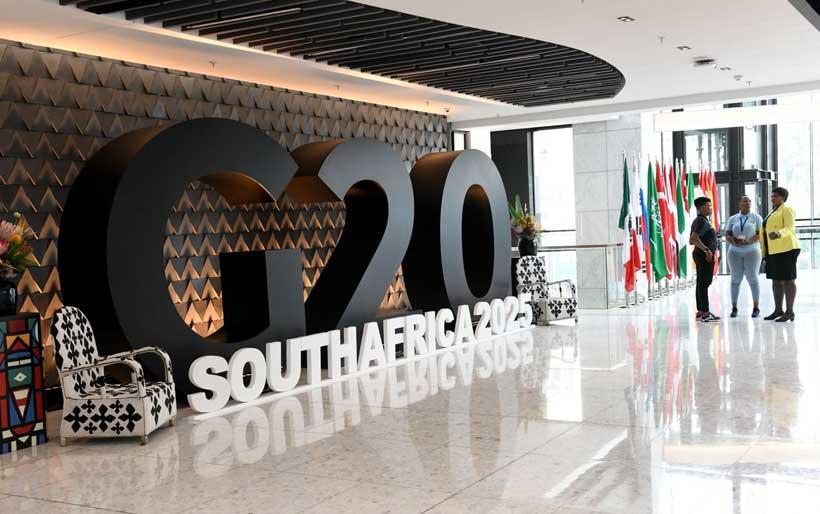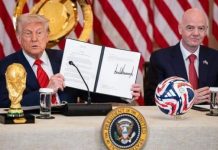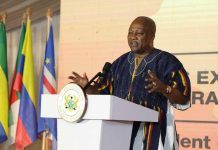By
Nicholas Oakes
Africa-Press – Mauritius. When South Africa opens the 2025 G20 Summit on November 22nd in Cape Town, the meeting will not simply be another high-level diplomatic gathering. It will be a test of what global leadership looks like in an era defined by debt crises, climate shocks, and geopolitical fragmentation. It will also be a summit shaped as much by who is present as by who is absent.
For the first time since leaders began to regularly attend the G20, the United States is not expected to attend at the presidential level. That absence will hang heavily over a summit built around three themes that South Africa has placed at the core of its G20 hosting: solidarity, equality, and sustainability. This is not symbolic branding. These are principles that directly challenge the structure and priorities of the current international system and America’s decision not to participate will only magnify their political weight.
South Africa’s Vision for a More Equal Order
South Africa has been clear about what it wants this G20 to represent. The country’s diplomats have framed the summit as an opportunity to “rebalance global governance” and restore trust between advanced economies and the Global South. That begins with solidarity, not as a moral appeal but as a practical necessity in a world where the gaps in competition are tightening across virtually every sector.
South African officials have emphasized that the world is too interconnected, through supply chains, energy markets, debt exposures, and climate shocks, for any nation to pursue growth alone. Solidarity, in their framing, means shared responsibility for global risks and shared input into global rules.
Expect to see debt restructuring as a key component of the weekend. Dozens of low and middle-income countries are approaching insolvency. Many see the G20 as the only venue capable of compelling creditors, including China, Western banks, and the IMF to negotiate jointly. South Africa intends to push for more predictable mechanisms, faster timelines, and deeper reductions of overall debt.
The theme of equality is expected to be even more pointed. Pretoria has argued that the international financial system remains structurally biased. Voting power at the IMF does not reflect modern economic reality. Climate finance packages distribute risk upward and accountability downward. Supply chain standards reflect the priorities of wealthy states far more than those of producing states.
South Africa wants this summit to pressure advanced economies to move beyond incrementalism and to recognize developing nations as cooperators, not beneficiaries, of global economic design.
Sustainability as an Economic Imperative
As noted in the central theme of the summit, sustainability is the key talking point of the weekend. South Africa is expected to focus on climate adaptation financing, food security resilience, renewable infrastructure gaps, green industrialization, and the economic displacement climate change is already causing.
Pretoria’s message is blunt: sustainability is not the environmental chapter of the global economy, it is the global economy. The safeguards nations build today will determine whether their populations can withstand the shocks of the coming decade.
The Symbolism of America’s Absence
While the summit’s themes are forward-looking, the headlines thus far are dominated by one glaring issue; The United States is boycotting the event, and not sending a single delegate.
This absence is certainly meant to be received as a bold statement. In a moment when most of the global agenda is being rewritten around solidarity, shared burdens, debt relief, and climate vulnerability, the United States is choosing not to stand at the table.
Many delegations will read this as confirmation of what they already suspected: that the U.S. is prioritizing bilateral leverage and transactional deals over multilateral governance. In other words, America is choosing power over partnership.
That decision will have ripple effects. If Washington is not present to influence the language of solidarity or the scope of sustainability targets, other powers will be. The U.S. forfeits not only visibility, but the ability to shape norms that will define the next phase of global cooperation. The strongman tactic will prove less effective as the world continues to accelerate towards a multipolar world, as opposed to a unipolar order where D.C. stands above the rest.
China and India Eager to Fill the Vacuum
China is expected to enter the summit with a confident posture, despite Xi Jinping not attending. Beijing has spent the past several years positioning itself as the Global South’s premier development partner. A G20 centered around equality and solidarity aligns perfectly with China’s messaging: that it represents a more inclusive, less conditional model of global cooperation. This message will be even more prominent with an absentee America. To capitalize on the overall theme of moving away from Western dominated structures, it would be reasonable to assume that many lending systems denominated in the Yuan will be discussed on the sidelines.
India, meanwhile, will frame itself as the democratic partner of choice for developing economies. Expect New Delhi to emphasize supply chain diversification, digital equality, and climate-resilient infrastructure. India will also push for greater representation of Global South nations in multilateral institutions, a message that will resonate strongly in Africa and Southeast Asia.
Europe Attempts to Lead
European leaders will arrive prepared to engage deeply on sustainability and climate finance, but without Washington their influence will be limited. Europe cannot match America’s financial firepower nor China’s development machinery.
While Europeans tend to embrace the rhetoric of solidarity, they remain cautious about large-scale debt forgiveness, new climate financing mandates, and reforms that would dilute their institutional voting power. That tension prevents Europe from presenting itself as the natural successor to U.S. leadership, but rather an extension of it in the eyes of many developing nations.
A Summit That Signals a Changing Global Order
If South Africa succeeds in shaping the weekend around solidarity, equality, and sustainability, the summit could represent the most significant shift in G20 philosophy since its creation.
Tomorrow’s G20 will not be remembered for dramatic breakthroughs. It will be remembered for something subtler but more consequential; a turning point in global governance where the United States stepped back and the rest of the world showed it could step forward.
moderndiplomacy
For More News And Analysis About Mauritius Follow Africa-Press







